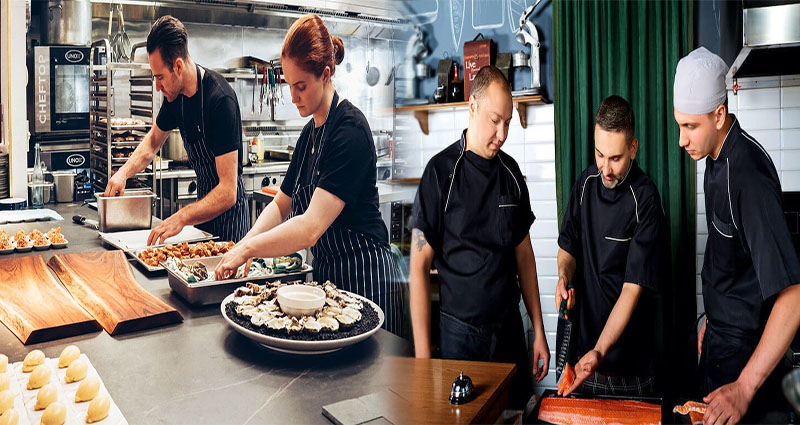Running a successful restaurant requires more than just great food. Culinary management plays a crucial role in achieving operational excellence, delivering exceptional dining experiences, and ensuring business sustainability. In this article, we will explore effective culinary management strategies that can help restaurants thrive in the competitive culinary landscape.
1. Menu Development and Innovation
Creating a well-crafted menu is a fundamental aspect of culinary management. A strategically designed menu can attract and retain customers, enhance profitability, and reflect the restaurant’s unique identity. To develop an enticing menu, consider the following strategies:
- Market Research: Understand your target audience and analyze market trends to identify popular dishes, ingredients, and culinary styles.
- Seasonality: Embrace seasonal ingredients and create menu specials that showcase freshness and variety.
- Signature Dishes: Develop unique signature dishes that set your restaurant apart from competitors and create a memorable dining experience for customers.
- Sustainable Practices: Incorporate sustainable and locally sourced ingredients to cater to the growing demand for eco-friendly dining options.
2. Streamlined Kitchen Operations
Efficient culinary management relies on smooth kitchen operations. By optimizing workflow and implementing effective processes, restaurant owners can enhance productivity, minimize wastage, and maintain consistent food quality. Consider these strategies for streamlined kitchen operations:
- Standardized Procedures: Establish clear and standardized recipes, cooking methods, and plating techniques to ensure consistent quality.
- Employee Training: Invest in ongoing training programs for kitchen staff to enhance their culinary skills, efficiency, and adherence to safety and sanitation standards.
- Inventory Management: Implement a robust inventory management system to prevent overstocking or shortages, reducing food waste and improving cost control.
3. Customer-Centric Approach
In the competitive restaurant industry, customer satisfaction is paramount. By adopting a customer-centric approach, restaurants can create loyal patrons who eagerly return and recommend their establishment to others. Consider the following strategies to enhance the customer experience:
- Personalization: Tailor menus or offer customization options to cater to individual preferences, dietary restrictions, and special occasions.
- Feedback Loop: Encourage customers to provide feedback and actively listen to their input. Use it to continually improve and address any issues promptly.
- Exceptional Service: Invest in excellent customer service by training front-of-house staff to be attentive, knowledgeable, and responsive to customer needs.
4. Embracing Technology
Leveraging technology can revolutionize culinary management and improve overall operational efficiency. Consider adopting the following technological solutions:
- Point-of-Sale (POS) Systems: Implement a user-friendly POS system to streamline order taking, payment processing, and inventory management.
- Reservation Systems: Utilize online reservation systems to enhance the customer experience and optimize seating availability.
- Data Analytics: Leverage data analytics tools to gain insights into customer preferences, sales patterns, and inventory management, enabling data-driven decision-making.
5. Collaboration and Partnerships
Culinary management extends beyond the restaurant’s walls. Collaborating with suppliers, local farmers, and other industry professionals can bring numerous benefits, including:
- Supplier Relationships: Build strong relationships with suppliers to ensure consistent quality and timely delivery of ingredients.
- Local Partnerships: Collaborate with local farmers and producers to showcase seasonal and locally sourced ingredients, fostering a sense of community and sustainability.
By implementing these culinary management strategies, restaurants can set themselves up for success in a highly competitive industry, delighting customers, optimizing operations, and driving profitability. Embrace these strategies, adapt to evolving preferences and trends, and continually strive for excellence in culinary management to thrive in the dynamic and ever-changing landscape of the restaurant business.









